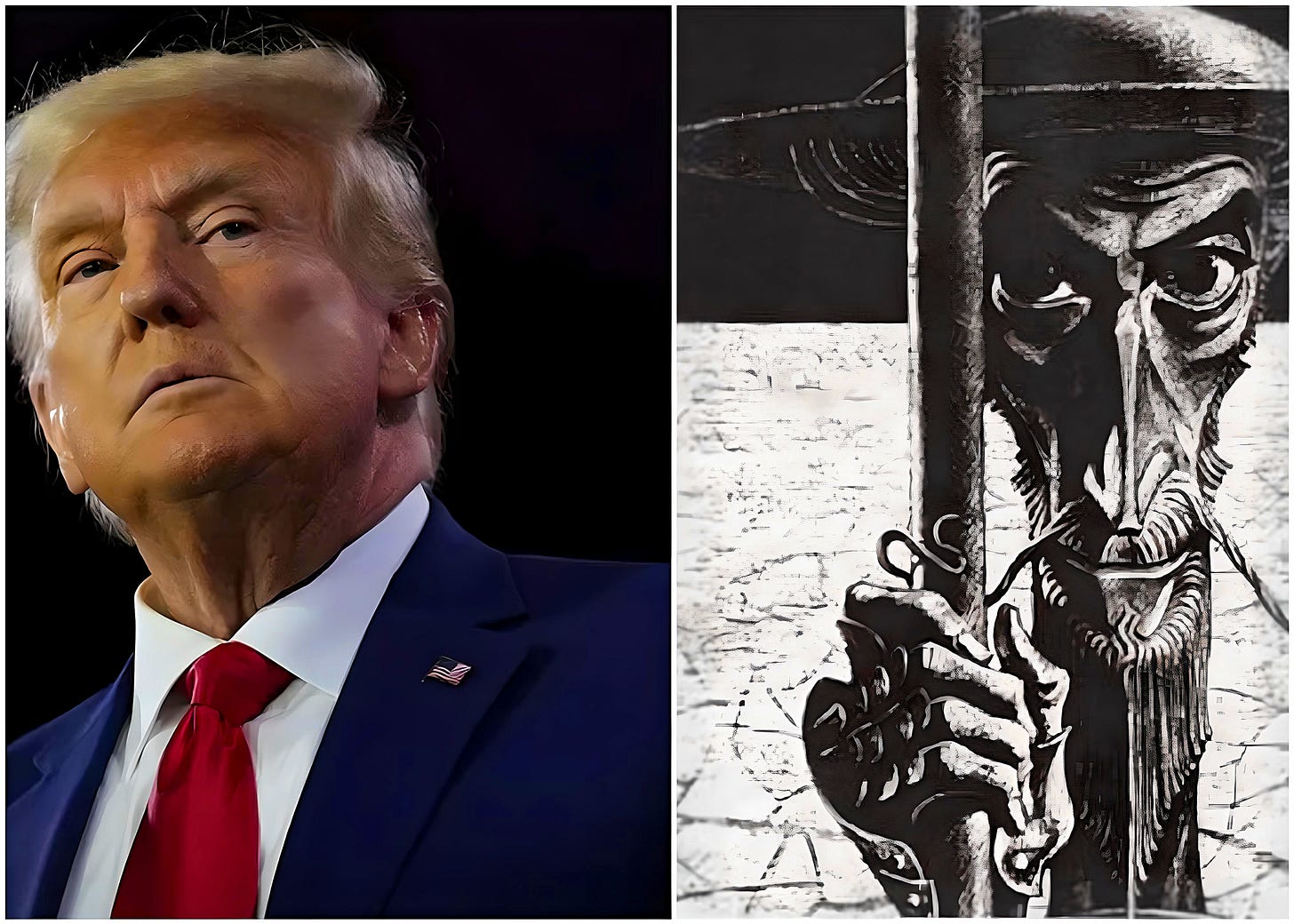The Parallel Quests of Donald Trump and Don Quixote
by Constantin von Hoffmeister
Constantin von Hoffmeister draws a compelling comparison between Donald Trump and Don Quixote, illustrating their pursuit of noble goals and their defiance against the obstacles they face.
This is the preface to the Spanish edition of Esoteric Trumpism.
Intertwining the romantic endeavors of men with history and literature, the figure of Donald Trump emerges as a modern-day adventurer, his saga striking a chord with the themes of ambition, idealism, and the pursuit of an elusive dream. Miguel de Cervantes’s magnum opus, Don Quixote, finds a curious and compelling parallel in Trump’s quest to reshape America according to his vision, a quest articulated through his own words and those of the valiant Don Quixote.
Donald Trump, much like Don Quixote, embarked upon his journey with a declaration of intent — to restore America’s greatness and defend the traditions it once stood for, encapsulated in his promise to real Americans that still want to be real Americans: “I will fight for you with every breath in my body, and I will never, ever let you down.” This promise, reminiscent of Quixote’s resolve to revive the forgotten codes of chivalry, calls forth the knight’s proclamation: “Destiny guides our fortunes more favorably than we could have expected. Look there, Sancho Panza, my friend, and see those thirty or so wild giants, with whom I intend to do battle and kill each and all of them, so with their stolen booty we can begin to enrich ourselves. This is noble, righteous warfare, for it is wonderfully useful to God to have such an evil race wiped from the face of the earth.”
These two quotes reveal the core of both characters: a profound belief in the righteousness of their cause and a commitment to battle the “giants” they perceive as threats to their creeds. Trump’s giants are the forces of degeneration, globalization, and political correctness that, in his view, have eroded the structure of American society. Quixote’s giants, though figments of his imagination, symbolize the corrupting forces of change and modernity that threaten the values he holds dear.
Trump, like Quixote, often finds himself tilting at windmills, embroiled in battles that others deem ill-advised or unwinnable. Yet, in the spirit of Quixote, he persists, driven by insights that, to him, justify the fight. “What separates the winners from the losers is how a person reacts to each new twist of fate,” Trump once said, a sentiment that could easily have sprung from Quixote’s lips, had he been a businessman in a bygone era.
In their respective quests, both men have faced ridicule and opposition. Quixote’s misadventures and seemingly misguided valor turn him into a figure of mockery for some, yet for others, he remains a symbol of purity and the noble pursuit of ideals, however unreachable they may seem. Trump, too, polarizes opinion, viewed by some as a champion of the forgotten and by others as a harbinger of division.
Cervantes, with a masterful stroke of his quill, imbued Don Quixote with layers of irony and satire, yet always with a thread of sympathy for his high-minded knight. It is in this nuanced portrayal that we find the essence of the tale of Trump — a complex scaffold constructed from his ambitions, his defiance of convention, and his strong belief in his version of the American dream.
Reflecting on their journeys, one might recall Quixote’s astute words: “The truth may be stretched thin, but it never breaks, and it always surfaces above lies, as oil floats on water.” In this reflection, there is an acknowledgment of the subjective nature of truth, a theme that resonates deeply in today’s political discourse, marked by Trump’s contentious relationship with a constantly lying media and his own narrative framework based on the actual concerns of actual people and not the interests of the swamp elite.
In their endeavors, both Trump and Quixote demonstrate a disregard for the conventional wisdom of their times, challenging the status quo in pursuit of their principles. Trump’s battles, fought in the political arena, seek to dismantle what he sees as the entrenched systems that hinder national prosperity and sovereignty. Quixote’s fights, though borne of illusion, are no less genuine in their intention to restore the values of uprightness and honor he believes have been lost to the world.



